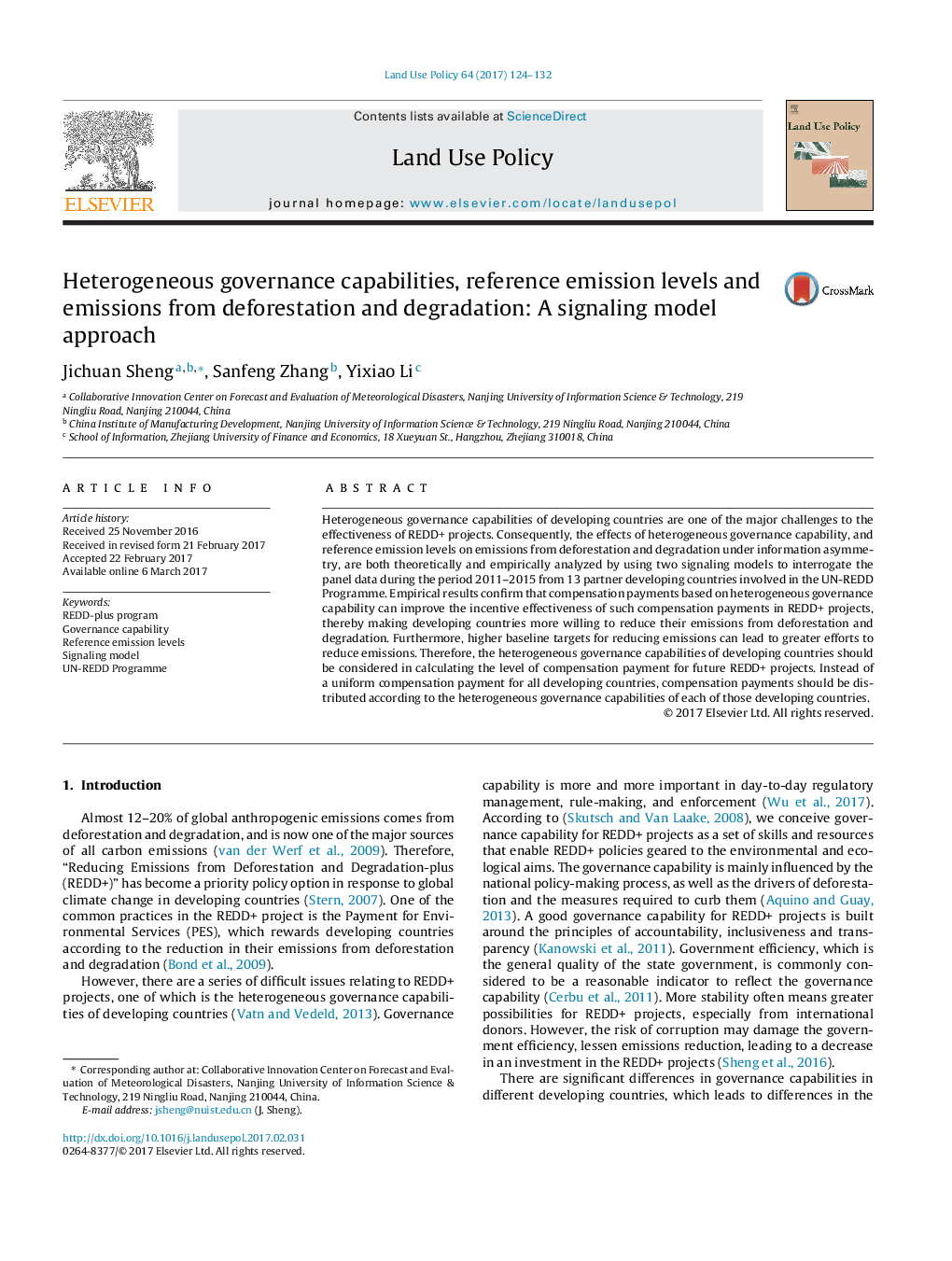| Article ID | Journal | Published Year | Pages | File Type |
|---|---|---|---|---|
| 6460806 | Land Use Policy | 2017 | 9 Pages |
â¢Signaling models are used to analyze heterogeneous governance capability in REDD+.â¢REDD+ efficiency decreases without considering heterogeneous governance capability.â¢REDD+ provide more incentives with considering heterogeneous governance capability.â¢Higher baseline efforts can achieve higher optimal efforts on reducing emissions.â¢Differentiated rather than uniform compensation payments should be used in REDD+.
Heterogeneous governance capabilities of developing countries are one of the major challenges to the effectiveness of REDD+ projects. Consequently, the effects of heterogeneous governance capability, and reference emission levels on emissions from deforestation and degradation under information asymmetry, are both theoretically and empirically analyzed by using two signaling models to interrogate the panel data during the period 2011-2015 from 13 partner developing countries involved in the UN-REDD Programme. Empirical results confirm that compensation payments based on heterogeneous governance capability can improve the incentive effectiveness of such compensation payments in REDD+ projects, thereby making developing countries more willing to reduce their emissions from deforestation and degradation. Furthermore, higher baseline targets for reducing emissions can lead to greater efforts to reduce emissions. Therefore, the heterogeneous governance capabilities of developing countries should be considered in calculating the level of compensation payment for future REDD+ projects. Instead of a uniform compensation payment for all developing countries, compensation payments should be distributed according to the heterogeneous governance capabilities of each of those developing countries.
